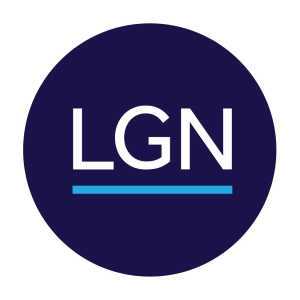PayPal Antitrust Litigation
BACKGROUND
Lockridge Grindal Nauen PLLP has been appointed as co-lead counsel in a lawsuit the Firm has filed on behalf of consumers against PayPal concerning anticompetitive agreements between PayPal and all eCommerce merchants that accept PayPal as a method of payment. The lawsuit alleges that PayPal’s Anti-Steering Rules have caused consumers to pay more than they ordinarily would have for their eCommerce transactions, in violation of federal antitrust and other laws.
PayPal is the dominant eCommerce payments platform in the United States. More than 400 million consumers have PayPal accounts, including 75% of all Americans. Nearly 1 million eCommerce websites in the United States accept PayPal as a means of payment. Every day, PayPal processes 41 million transactions.
To accept PayPal, eCommerce merchants in the United States enter form contracts with PayPal that, since no later than 2010, strictly prohibit offering price discounts when consumers use non-PayPal means of payment. Thus, while PayPal charges merchants the highest transaction fees in the industry (over 3.5% per eCommerce transaction), PayPal-accepting merchants have agreed by contract that they will not use price incentives to steer consumers away from PayPal to more cost-effective payment solutions. By way of example, if a PayPal-accepting merchant sells an iPhone 11s for $288.00 when a consumer pays with PayPal, that merchant cannot offer even one penny less than $288.00 to consumers who select a more cost-effective payment method to complete the same transaction.
Since at least 2017, PayPal’s merchant agreements also prohibit non-price forms of steering consumers toward rival payment platforms. Under such agreements, eCommerce merchants can neither express any preference for other payment options, nor prioritize them in their online storefronts or checkout flows. Merchants must present PayPal as an entirely neutral option when, in fact, the economic consequences of clicking PayPal at checkout are significant and adverse.
These restraints are known as “Anti-Steering Rules,” and PayPal is alleged to have violated various antitrust and other laws by their imposition thereof. Without these Anti-Steering Rules, merchants could competitively price transactions by the cost of the selected payments platform, allowing consumers to secure discounts at checkout. The Anti-Steering Rules, however, preclude any such discounts, effectively fixing a price floor for millions of products that eCommerce consumers can obtain with payment methods other than PayPal.
The result is higher merchant transaction fees across the industry, but it is ultimately everyday eCommerce consumers who pay the price. Beyond PayPal’s market dominance, one of the reasons merchants routinely accept PayPal’s Anti-Steering Rules is that, while these rules increase merchants’ transaction fees, such fees are baked into the prices merchants charge consumers. In other words, consumers pay the cost of PayPal’s Anti-Steering Rules, not merchants.
Higher prices are not the only consumer injury resulting from PayPal’s Anti-Steering Rules, which also prevent merchants from conveying the pricing information needed for consumers to make a free and informed choice between payment alternatives. That PayPal cannot nudge its customers away from PayPal by conveying simple economic facts – for example, that PayPal charges industry-high fees that inflate prices – also fundamentally distorts competition.
The lawsuit is brought on behalf of a class of consumers nationwide who transacted with the nearly one million U.S. eCommerce merchants who have agreed to PayPal’s Anti-Steering Rules. The lawsuit asserts claims under the federal Sherman Act, as well as state competition laws.
The lawsuit was filed in the United States District Court for the Northern District of California on October 5, 2023, and is captioned Sabol v. PayPal Holdings, Inc., et al., No. 5:23-cv-5100.
Are you a Class member?
If you are a consumer who made online eCommerce transactions and are interested in learning more about this lawsuit, please contact us.
CONTACT
If you would like to discuss your legal options, please contact Brian Clark or Steve Teti at (bdclark@locklaw.com), (sjteti@locklaw.com), or at 612-339-6900.
